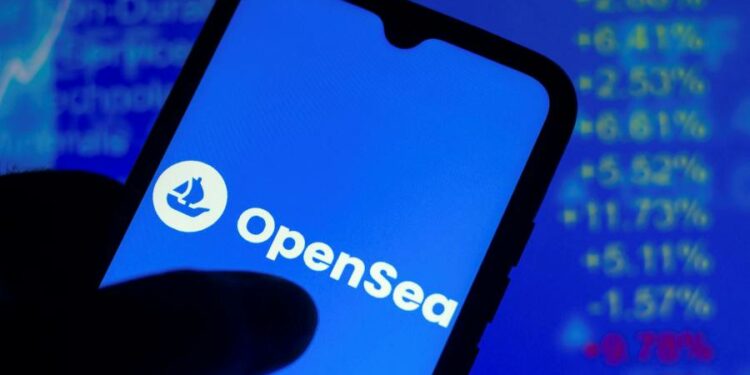Undeterred by the collapse in cryptocurrencies, blockchain start-up OpenSea is offering investors a new way to participate in the digital economy. The marketplace for non-fungible tokens, or NFTs, now enables purchase with multiple assets. Instead of using one cryptocurrency, buyers can bundle together different assets, including other NFTs.
Using one NFT to buy another will not do much to improve liquidity, something that might support prices. Nor does it address scams in the market.
NFTs are blockchain recorded receipts for digital assets such as artwork or video game items. Bored Ape Yacht Club NFTs are among the best known. Last year, one sold for $3.4mn. Bored Ape buyers also access member-only social media. Funding for start-ups connected to NFTs reached $7.4bn in the first quarter of the year, according to PitchBook data.
The jump in the popularity of NFTs has transformed OpenSea. In January the marketplace raised $300mn at a $13.3bn valuation, up from $1.5bn six months earlier. It benefits from a lack of competitors. Coinbase launched an NFT marketplace in April but has a fraction of OpenSea’s trades, according to Dune Analytics.
OpenSea’s NFT trades are hailed as a tangible example of web3 in action, a decentralised wonderland in which intermediaries such as banks and Big Tech no longer sit between online transactions. Of course, OpenSea itself is an intermediary. It charges a 2.5 per cent fee on transactions.
Blockchain investors are banking on the idea that the financial experimentation represented by NFTs has utility beyond Twitter profile pictures and a speculative price boom.
But as cryptocurrencies crash, NFT sales volumes have fallen. Dune Analytics says OpenSea’s monthly trading volume almost halved between January and May, to $2.6bn.
The sector has also been hit by an insider trading scandal, reports of NFT theft, and copyright problems. Artists say their work is being plagiarised. OpenSea needs to focus on cleaning up scams. It may be uncomfortable with the idea of introducing rules and regulation. Rules are, after all, not very decentralised. But OpenSea is charging for a service. It has to earn its fee by providing a secure marketplace.











